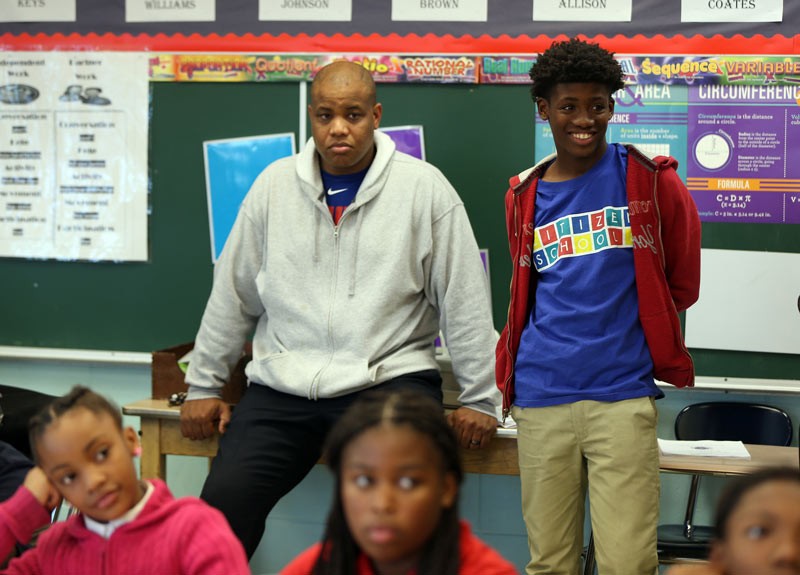
In less than a month, hundreds of students from DePaul’s College of Education will put on caps and gowns and graduate with teaching degrees. Many of these new graduates hope to work as teachers, counselors or leaders in Chicago Public Schools (CPS.)
Unfortunately for these recent grads, their focus will not be entirely on lesson plans and student development. CPS’ $1 billion budget deficit and the district’s current battle with Springfield over funding means these future teachers may face even bigger challenges both in and out of the classroom.
“Anyone who’s seeking to be an educator needs to be concerned with the way in which public education is not being funded,” Jen Johnson, the teacher evaluation facilitator at the Chicago Teachers Union (CTU) said.
“They envision in their teacher preparation programs a certain way that they will be able to support student learning,” Johnson said. “In many cases because of austerity budgets and threats of cuts, the kind of vision for their classroom will be very difficult for them to enact.”
On May 16, CPS told school principals to expect budget cuts as high as 30 percent. Cuts this large could result in teacher and staff layoffs, larger class sizes and lack of funding for resource materials.
“We’re looking at the fundamental … destruction of public education in Chicago if the current cuts are implemented.”
In addition to the ongoing budget crisis, CPS is struggling to come to an agreement with the CTU, about teacher contracts. CPS teachers have been working without contracts since June of last year. In April, the CTU rejected a contract proposal recommended by an independent researcher.
Students in the College of Education are paying close attention to the situation with CPS and the CTU as they plan for their future.
“When the system itself is in such a crisis, it’s hard to even do your job,” Aileen Lewis, a junior hoping to become an English teacher at a CPS high school, said.
Lewis believes CPS’ budget problems should not be the main concern when going into this field.
“I think the kids are the most important part … I mean going into these schools, you fall in love with them the second you go in. They’re so funny, fun, smart.”
Due to the continual fight over budgets, other students find the uncertainty concerning and are looking elsewhere for employment. Soon-to-be-graduate Olivia Hyman said she would rather move towards a school that will guarantee financial stability.
“It’s kind of hard but I would much rather get a job in a much more secure economic situation,” Hyman said.
“CPS, I think, has its own problems,” Hyman said. “Then you add on Illinois’ problems so that’s a little risky.”
While CPS works to remedy its current situation, Johnson hopes the incoming teachers will see entering CPS as an opportunity to make a positive impact on students.
“If a student is dedicated and can come in knowing that it’s going to be challenging and more challenging than just a regular first year of teaching, you know, may be … they can still make a difference,” Johnson said. “They are needed to kind up keep up the energy and make sure students get the education they deserve.”
With the current negativity surrounding CPS, it’s hard to see the light at the end of the tunnel. Educators at the DePaul College of Education, however, try to remind students that all school systems have flaws but it’s important to look at the positives.
Whether new graduates decide to work in a financially strapped CPS school or another school district, many believe the quality of an education starts with the teacher.
“You don’t have to have laptops in order for children to learn really effectively,” Hyman said. “It comes down to the teacher, so I’m not exactly sure how I’m going to do it, but it’s possible. I know it’s possible because I’ve seen great teachers that have barely anything to work with and if they can do it, I can do it.”


Mary Beth Rolak / May 24, 2016 at 8:55 am
The last paragraph says it all. Strive to be that teacher.